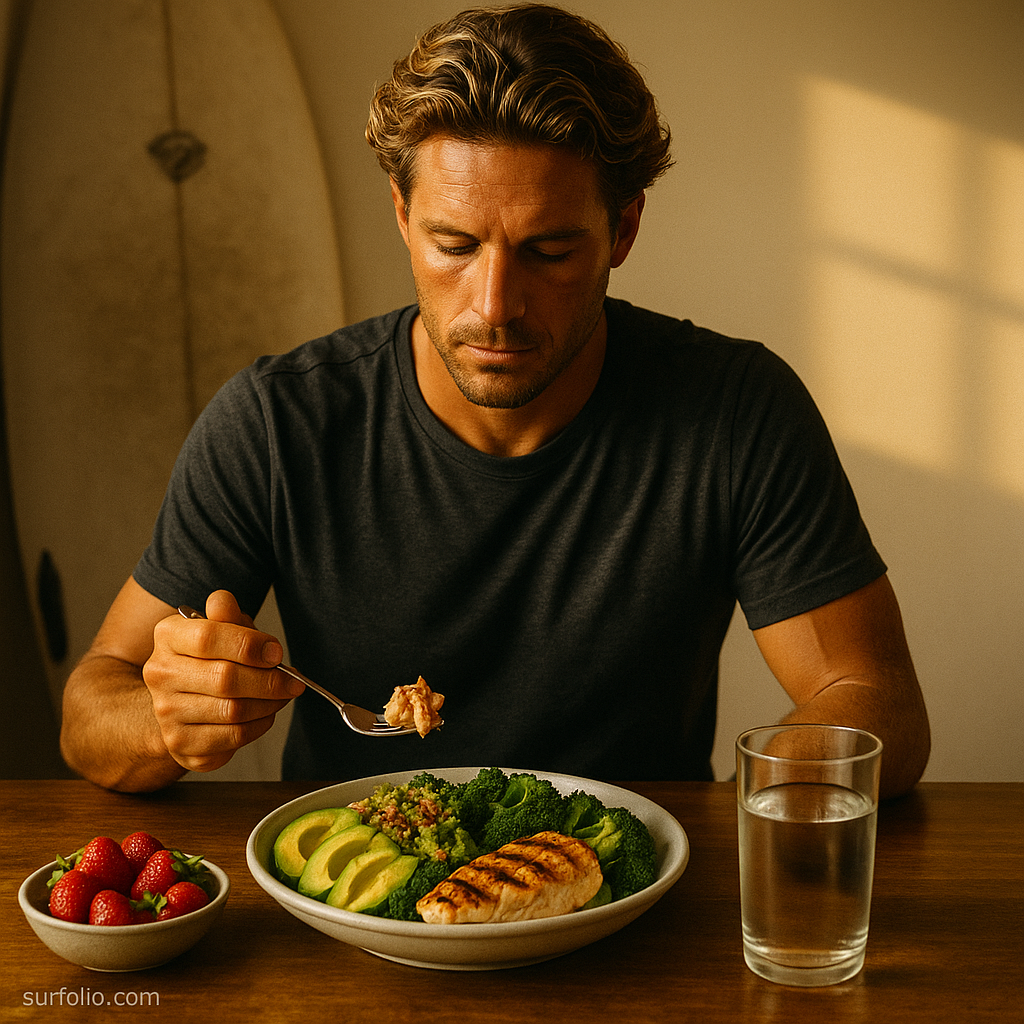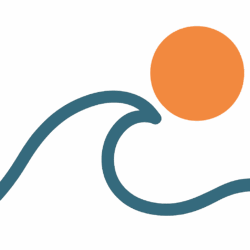
Surfing demands strength, stamina, agility, and mental clarity — and your nutrition plays a crucial role in all of it. Every session in the ocean is a test of endurance and recovery. The right fuel can keep your paddling powerful, your reflexes sharp, and your energy steady through every set.
Whether you’re catching sunrise waves before work or training for a competition, fine-tuning your diet can dramatically improve performance and recovery. Here’s how surfers can eat smarter to stay in sync with the sea.
The Surfer’s Energy Equation
Surfing isn’t just cardio — it’s a full-body workout combining bursts of explosive effort with long intervals of endurance paddling. That means your nutrition must support both quick energy release and sustained stamina.
At its core, a surfer’s diet should balance:
- Complex carbohydrates for endurance energy
- Lean proteins for muscle repair and strength
- Healthy fats for sustained focus and inflammation control
- Hydration to support performance and thermoregulation
The goal is to avoid energy spikes and crashes while maintaining steady endurance throughout long sessions.
Pre-Surf Nutrition: Fuel Before You Paddle Out
The best pre-surf meal gives your body lasting energy without feeling heavy. Ideally, eat about 60–90 minutes before hitting the water.
Smart pre-surf options include:
- Oatmeal topped with banana and honey
- Whole-grain toast with almond butter and sliced strawberries
- A smoothie with Greek yogurt, spinach, mango, and chia seeds
- A rice bowl with eggs and avocado
Pro tip: Focus on low-glycemic carbs that release energy slowly. Avoid sugary snacks or heavy fats before paddling out — they’ll weigh you down and sap energy mid-session.
Hydration: The Overlooked Factor
Dehydration is one of the most common yet unnoticed performance killers for surfers. Even in cool water, your body loses fluids through exertion and salt exposure.
Drink at least one full glass of water before paddling out, and consider adding electrolytes for long or tropical sessions. Coconut water or homemade electrolyte mixes (water, sea salt, lemon, and honey) work perfectly.
Hydration tip: If you start to feel sluggish, cramped, or foggy while surfing, dehydration is often the hidden cause.
During Surf Sessions: Light Fuel if Needed
Most surf sessions don’t require mid-session fueling unless you’re out for more than two hours. But for marathon surf days, a small refuel can help.
Pack easy, quick-digesting snacks like:
- Energy bars with oats and nuts
- Dried fruit or dates
- Banana or apple slices
- Coconut water for quick electrolytes
Avoid processed or heavy snacks — your body needs light, clean energy it can burn quickly.
Post-Surf Recovery: Rebuild and Recharge
After a surf, your body craves nutrients to repair muscles, replenish glycogen stores, and calm inflammation. Within 30–45 minutes of finishing, eat a balanced meal that includes:
- Protein (20–30g): Grilled fish, chicken, eggs, or tofu
- Carbs: Quinoa, brown rice, or sweet potatoes
- Healthy fats: Avocado, olive oil, or nuts
- Micronutrients: Leafy greens, citrus fruits, and colorful vegetables
Example post-surf meal: Grilled salmon with quinoa, steamed broccoli, and avocado slices. Add a splash of olive oil and lemon for flavor and recovery benefits.
Pair your meal with hydration — water or coconut water — to restore fluid balance.
Key Nutrients for Surfers
Surfers should focus on nutrients that support joint health, muscle endurance, and mental clarity.
1. Omega-3 Fatty Acids
Found in fish, flaxseeds, and walnuts, these reduce inflammation from repetitive paddling and help protect joints.
2. Magnesium
Supports muscle function and reduces cramping. Found in spinach, almonds, and dark chocolate.
3. Potassium and Sodium
Balance electrolyte levels. Bananas, oranges, and sea salt are natural sources.
4. Vitamin D
Essential for bone strength and immunity — and though surfers get sunlight, supplementation helps in cloudy seasons.
5. Antioxidants
Berries, green tea, and leafy greens combat oxidative stress from high-intensity sessions.
Supplements for Extra Edge
While whole foods should always come first, targeted supplements can help fill gaps. Consider:
- Protein powder (whey or plant-based) for easy post-surf recovery
- Electrolyte tablets during long, hot sessions
- Fish oil for joint and heart health
- Magnesium glycinate for muscle relaxation and better sleep
Always check with a professional if you’re unsure how supplements interact with your overall nutrition plan.
Eating for Surf Longevity
Surfing longevity is about maintaining performance and preventing burnout. That means consistent eating habits — not crash diets or extreme routines.
Prioritize:
- Whole, unprocessed foods
- Regular meals (no long fasting before sessions)
- Adequate calories for your training load
- Colorful variety for full nutrient coverage
Even small improvements in daily nutrition translate into better focus, stamina, and enjoyment in the water.
The Mind-Body Connection
Nutrition doesn’t just fuel the body — it shapes your mindset. Stable blood sugar improves focus and patience, helping you read waves and time your takeoffs. Eating clean, whole foods supports mental clarity, keeping your reactions sharp when sets roll in.
Surfing is as much about mental flow as physical skill — and nutrition directly feeds both.
Final Thoughts
Peak surf performance starts long before you paddle out — it begins in the kitchen. By fueling your body with balanced meals, staying hydrated, and focusing on recovery, you give yourself the foundation to surf longer, recover faster, and feel stronger.
Every bite either builds or breaks your next session. So eat like a surfer: light, clean, and intentional. The waves will thank you — and your body will, too.
